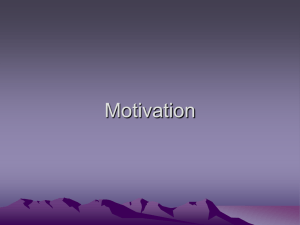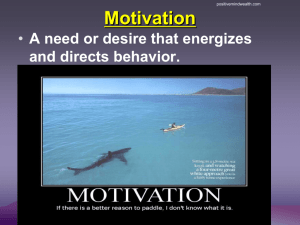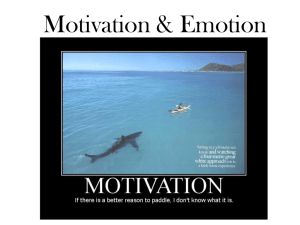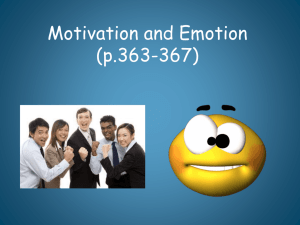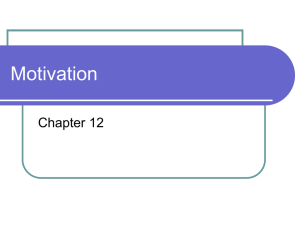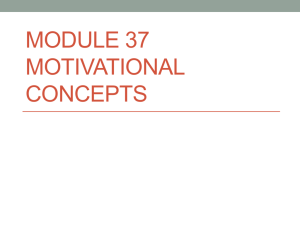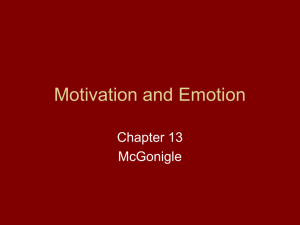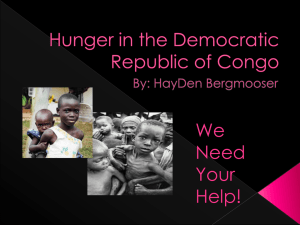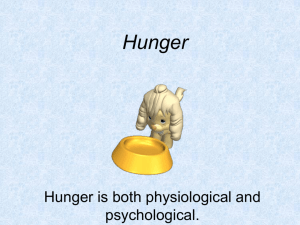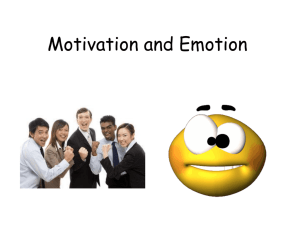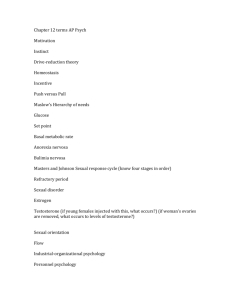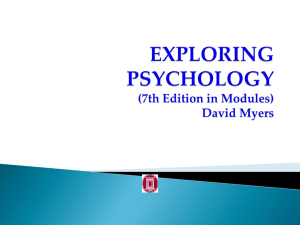Chapter 12 Motivation and Emotion
advertisement
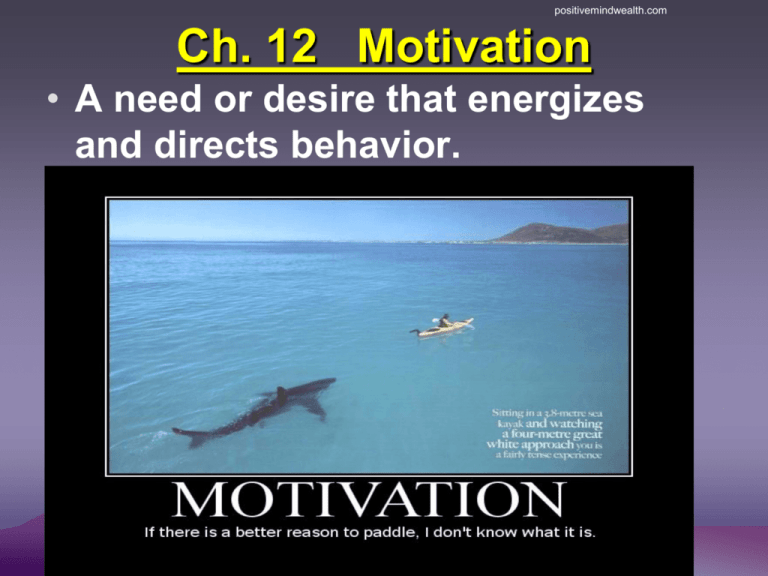
positivemindwealth.com Ch. 12 Motivation • A need or desire that energizes and directs behavior. http://www.learner.org/resources/series138.html?pop=yes&pid=1509# look for #12, 19 Early Motivation Theories Instinct Theory: we are motivated by our inborn automated behaviors. But instincts only explain why we do a small fraction of our behaviors At the heart of this perspective, is the motivation to survive - we are biologically programmed to survive. Salmon and penguins returning to their birthplace Baby rooting Drive-Reduction Theory • The idea that a physiological need creates an aroused tension state (a drive) that motivates an organism to satisfy the need. • Homeostasis an organisms natural tendency to maintain a steady internal state. If we are water deprived, our thirst drives us to drink and to restore the body’s normal state For example, we reduce the NEED to eat by eating. Incentive Theory • An incentive may be defined as an external goal that has the capacity to motivate behavior. This does not mean that it will always motivate behavior, only that it can. Arousal Theory • Sometimes we do not seek homeostasis. • Sometimes we seek arousal. • Our needs go beyond reducing drives. Maslow’s Hierarchy of Needs http://www.youtube.com/watch?v=cfR7qxtgCgY Maslow’s Hierarchy of Needs NEED SELFACTUALIZATION ESTEEM NEEDS LOVE, AFFECTION, AND BELONGINGNESS NEEDS SAFETY NEEDS PHYSIOLOGICAL OR SURVIVAL NEEDS • http://www.youtube.com/watch?v=Iucf76E-R2s&feature=related Up and the Hierarchy of Needs Biological Basis of Hunger • Hunger does NOT come from our stomach. It comes from our… • Brain What part of the brain? • The Hypothalamus Physiology of Hunger • Washburn’s studies showed hunger was partially related to the stomach. • But those with their stomachs removed still feel hunger. Body Chemistry • Glucose • The hormone insulin converts glucose to fat. • When glucose levels drop- hunger increases. The Brain In the 1960’s it was discovered that hunger comes from……….. The Hypothalamus Hypothalamus Lateral Hypothalamus • When stimulated it makes you hungry. • When lesioned (destroyed) you will never be hungry again. Ventromedial Hypothalamus • When stimulated you feel full. • When lesioned you will never feel full again. How does the hypothalamus work? Two Theories Set Point Theory Leptin Theory • Hypothalamus acts like • Leptin is a protein a thermostat. produced by bloated fat cells. • We are meant to be in a certain weight range. • Hypothalamus senses rises in leptin and will curb eating and increase activity. The Psychology of Hunger • What psychological and cultural factors influence hunger? • Externals: people whose eating is triggered more by the presence of food than internal factors. Taste Preferences Food taste better and we chew less when we are hungry (beginning of a meal). Food tastes worse and we chew more when we are not hungry (at the end of the meal). Its weird, the better the food tastes, the less time we leave it in our mouths. Douglas McGregor, Theories of X and Y THEORY Assumes that works are basically lazy, error-prone, and extrinsically motivated by money. •Must never be trusted and always be watched. THEORY Assumes that, given challenge and freedom, workers are motivated to achieve self-esteem and to demonstrate their competence and creativity. Intrinsic Motivation • A desire to perform a behavior for its own sake. Extrinsic Motivation • A desire to perform a behavior due to promised rewards or threats of punishment. INTRINSIC vs. EXTRINSIC A desire to perform a behavior for its own sake and to be effective. A desire to perform a behavior due to promised rewards or threats of punishment. Why are you in Psych? Why are you in AP Psych? •Interesting •Parents. •Curiosity •Need the credit. •Competent •Didn’t want to take PE Taken from different sites on the internet.
